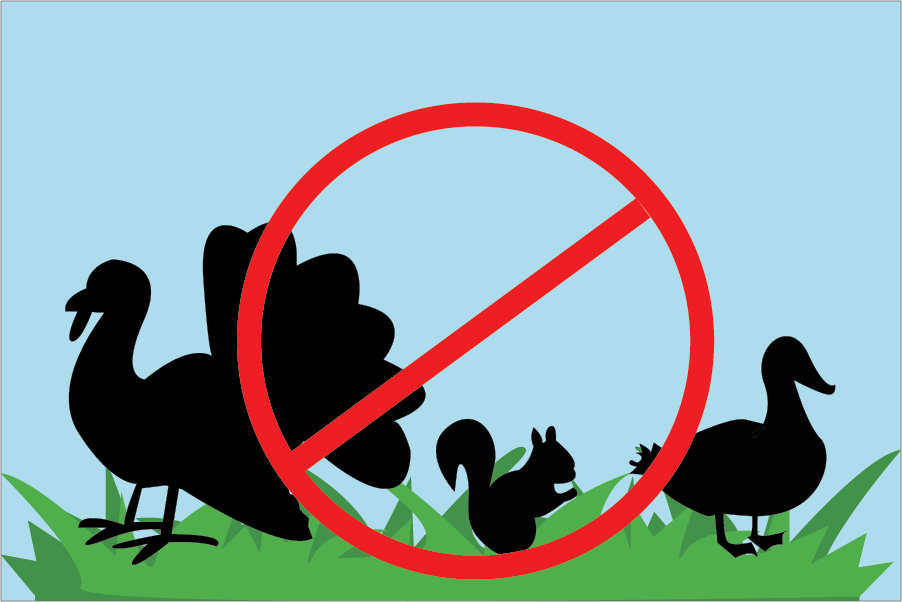
New fines imposed on those feeding creatures in Davis
Though locals have grown accustomed to the vast amount of wildlife Davis has to offer, many outsiders are unaware of how prevalent turkeys, squirrels and other populous wildlife are to the area. Yet locals and outsiders alike are too willing to share their meals with them and a lot do not know of the negative repercussions for feeding these animals.
The issue was first recognized at a city council meeting in 2016, as an official means of controlling the number of growing wild turkeys. Through this decision, the council decided to minimize the amount of turkeys in the region.
“The management plan identified a four-pronged management approach, including community outreach and deuce action, on problems associated with feeding turkeys, mass capture and relocation, promotion of natural predators and selective lethal removal of overly aggressive individuals,” said John McNerney, the wildlife resource specialist for the City of Davis.
This was the beginning of the many steps taken at the most recent city council meeting, in August, toward a “no feeding” ordinance for the rest of the creatures that started to cause issues for commercial and residential property. The ordinance can therefore aid safety and the education of those who may be uniformed with the impact that wild turkeys, among other animals, are now having.
“Living in off-campus housing for two years has helped me realize how important it is to not feed wildlife, considering the one time we fed birds they came back more aggressive and with many more of its kind,” said Claire Dodd, a third-year sociology-organizational studies major.
McNerney and the rest of the council agreed that there won’t be harsh fines given to patrons who feed wildlife. If given out, fines will range from $100 to $500, depending on if multiple offenses were committed. This law is intended to be a learning opportunity for residents and a last resort to gain compliance if other methods do not allow the person to comprehend the challenges that come with feeding wildlife.
“The supplemental feeding of wildlife is well known to cause certain wildlife to habituate to humans — loose natural wariness— localizes their daily activity and artificially support population growth,” McNerney said. “All of these, in turn, increase the frequency and magnitude of human v. wildlife conflict within the community.”
As these new standards are set in place and seriously considered, McNerney hopes to make a difference in safety, as feeding animals aggravates them and tends to result in dangerous situations. He is targeting bird feeders as a supplier of food for other wildlife that can reach it if suspended too low, providing sustenance for creatures besides birds. More specifically, these proposed plans are directed toward coyotes, wild turkeys, foxes, skunks, raccoons, possums, squirrels, ducks, geese, crows and gulls.
“Feeding squirrels, or any species of wild animal, does way more harm and desensitization to their surroundings than it does any good,” said Colleen McVay, a second-year animal biology major. “Many human foods can cause severe health and wellness problems for these animals, as their digestive tracts are not meant to break down man-made cuisine. Additionally, they can create a bad sense of dependency towards humans, instead of their natural surroundings.”
Written by: Lauren Tropio — city@theaggie.org



